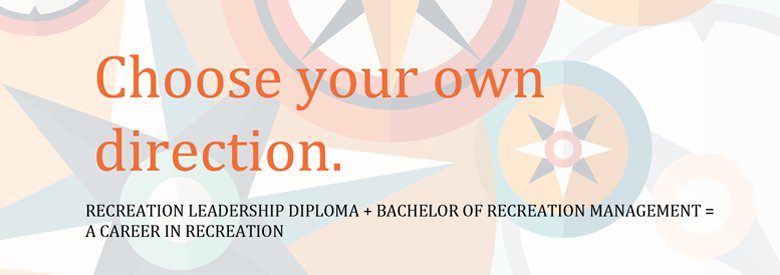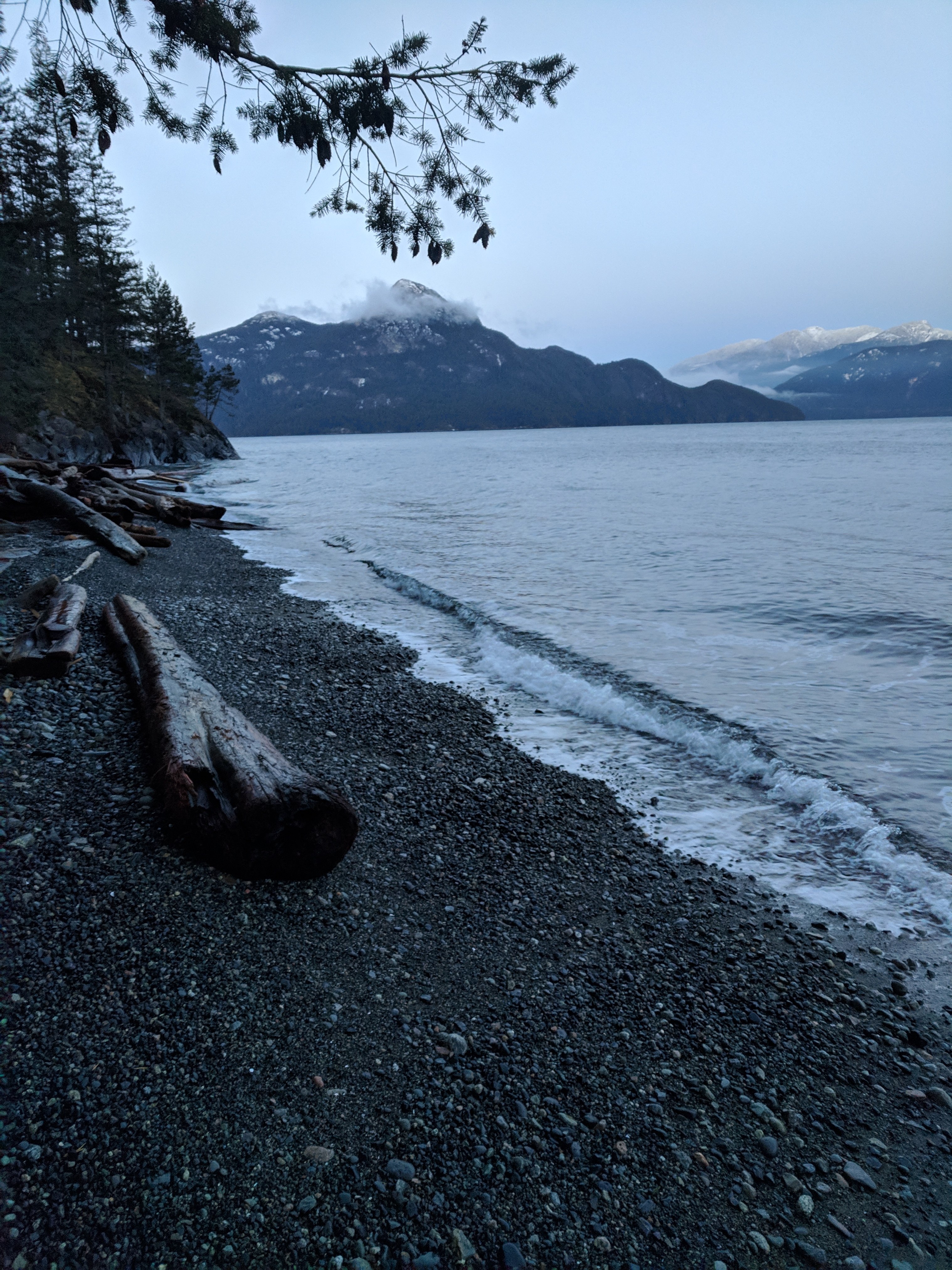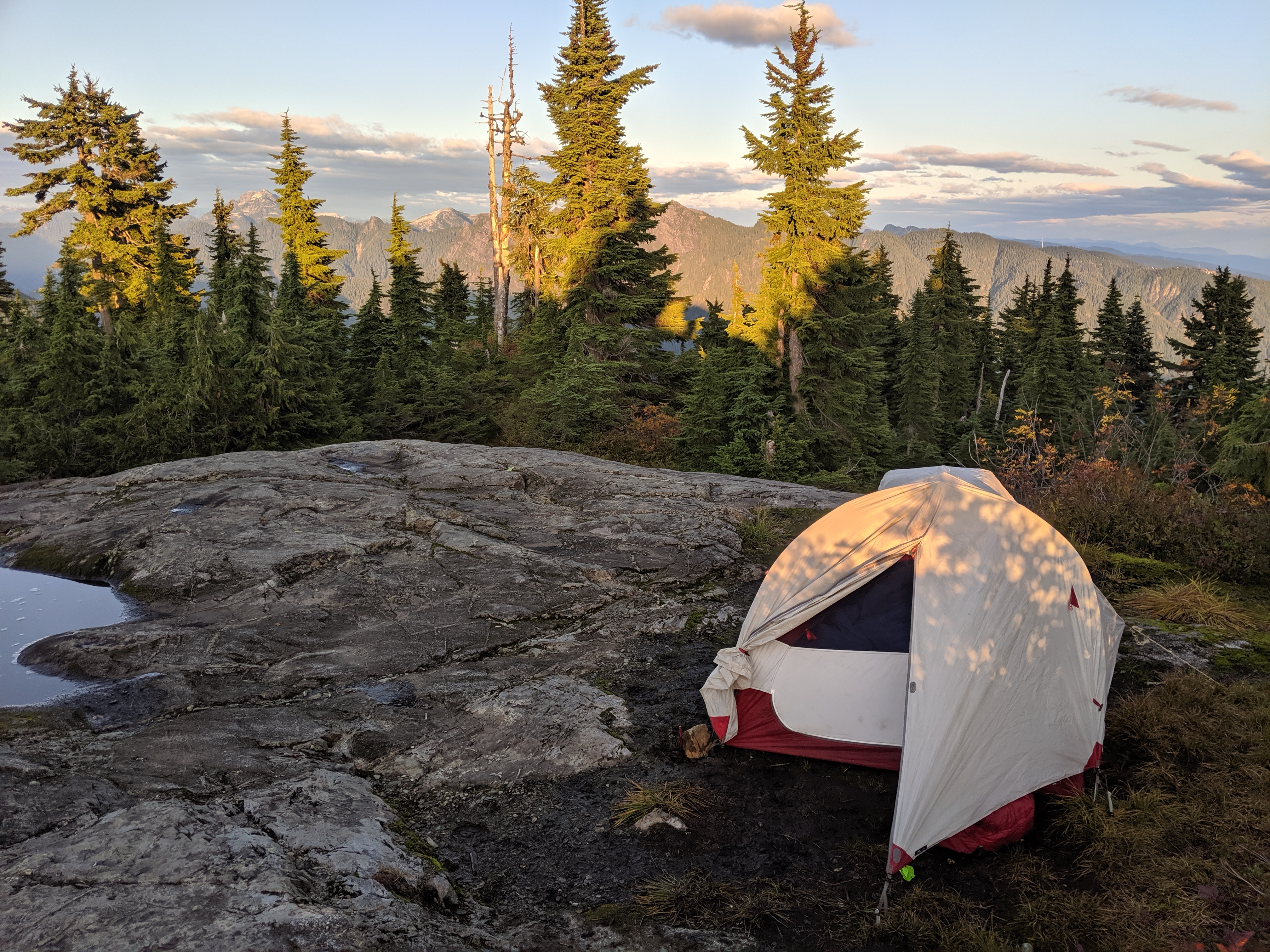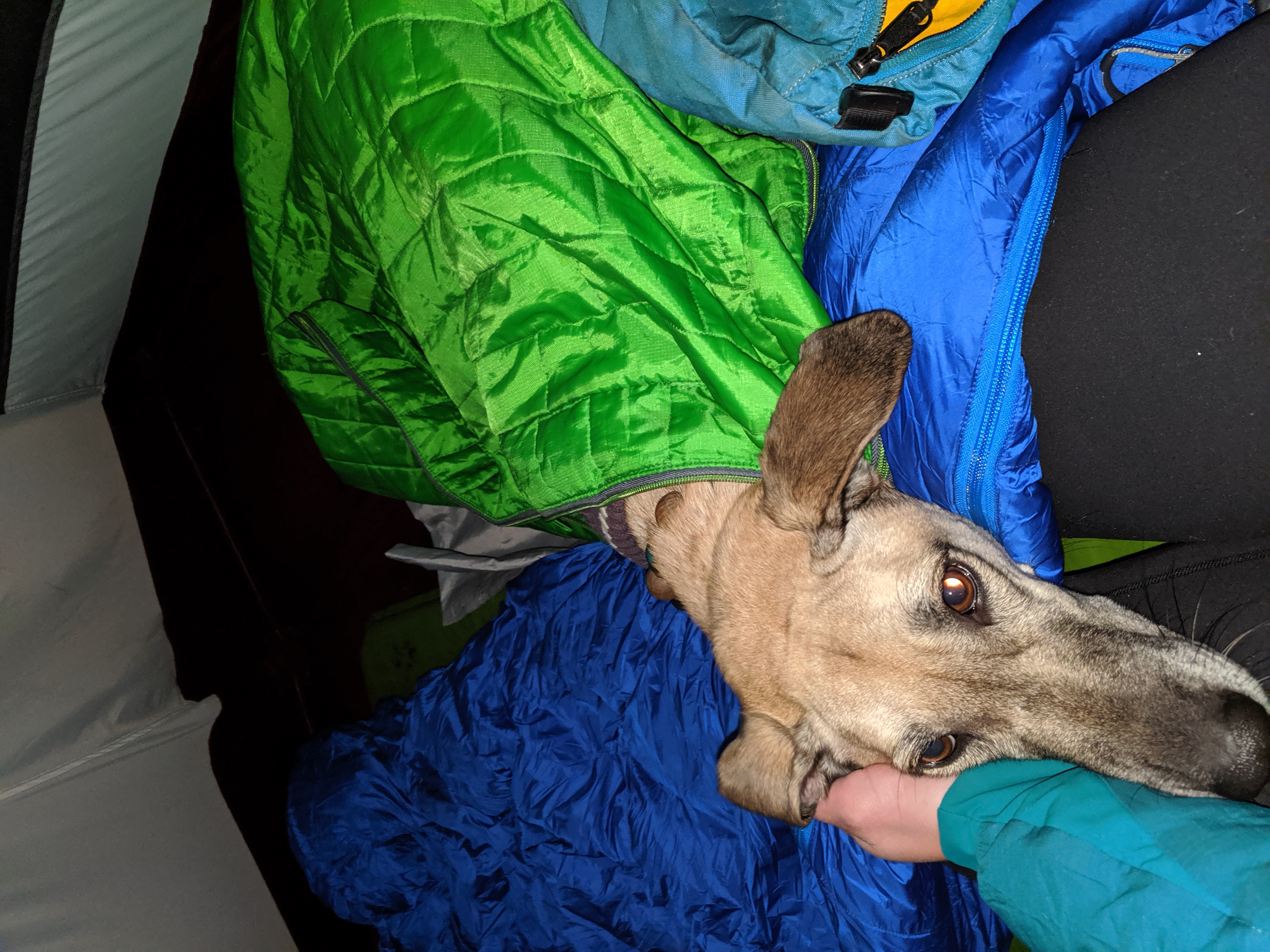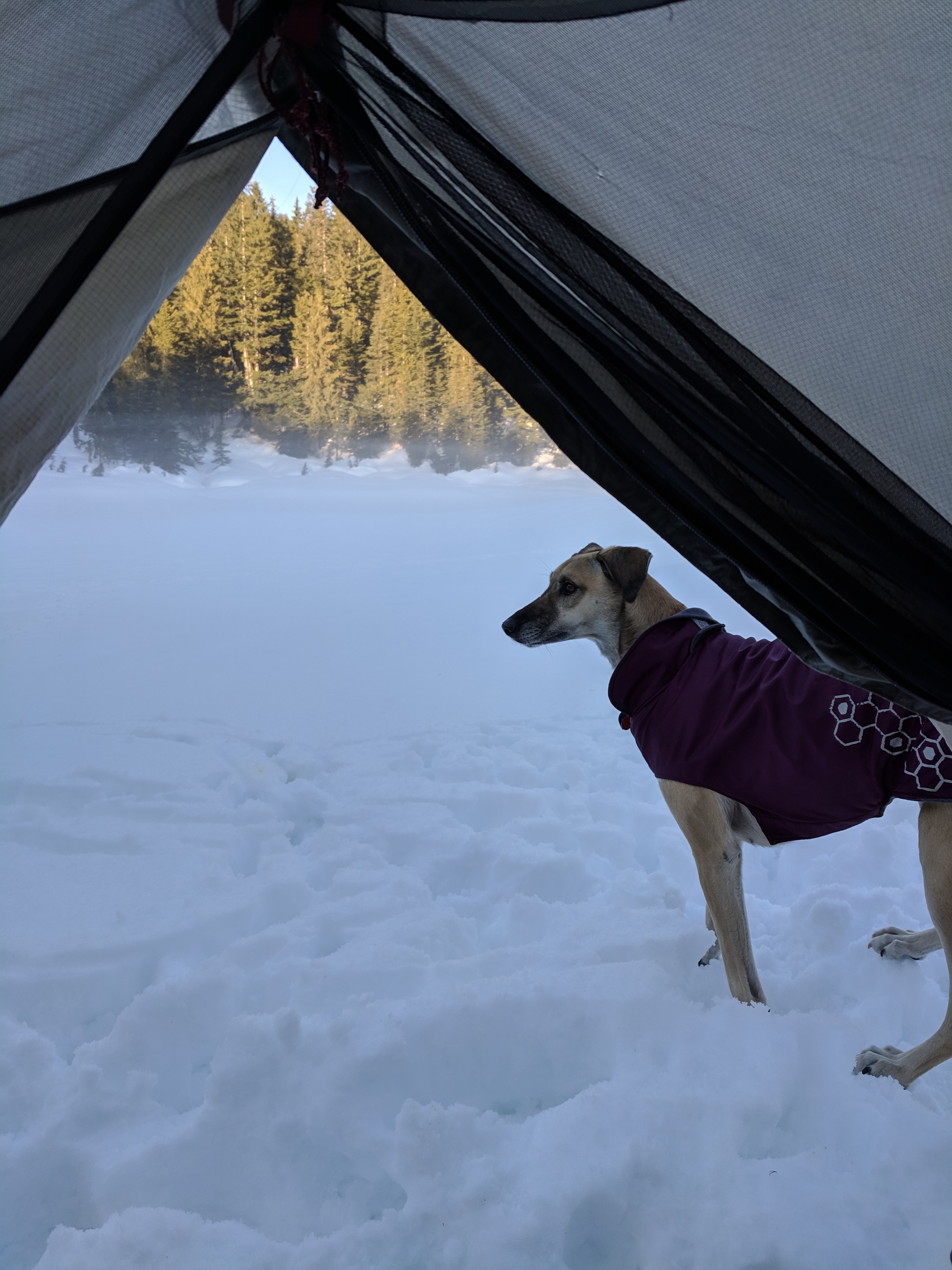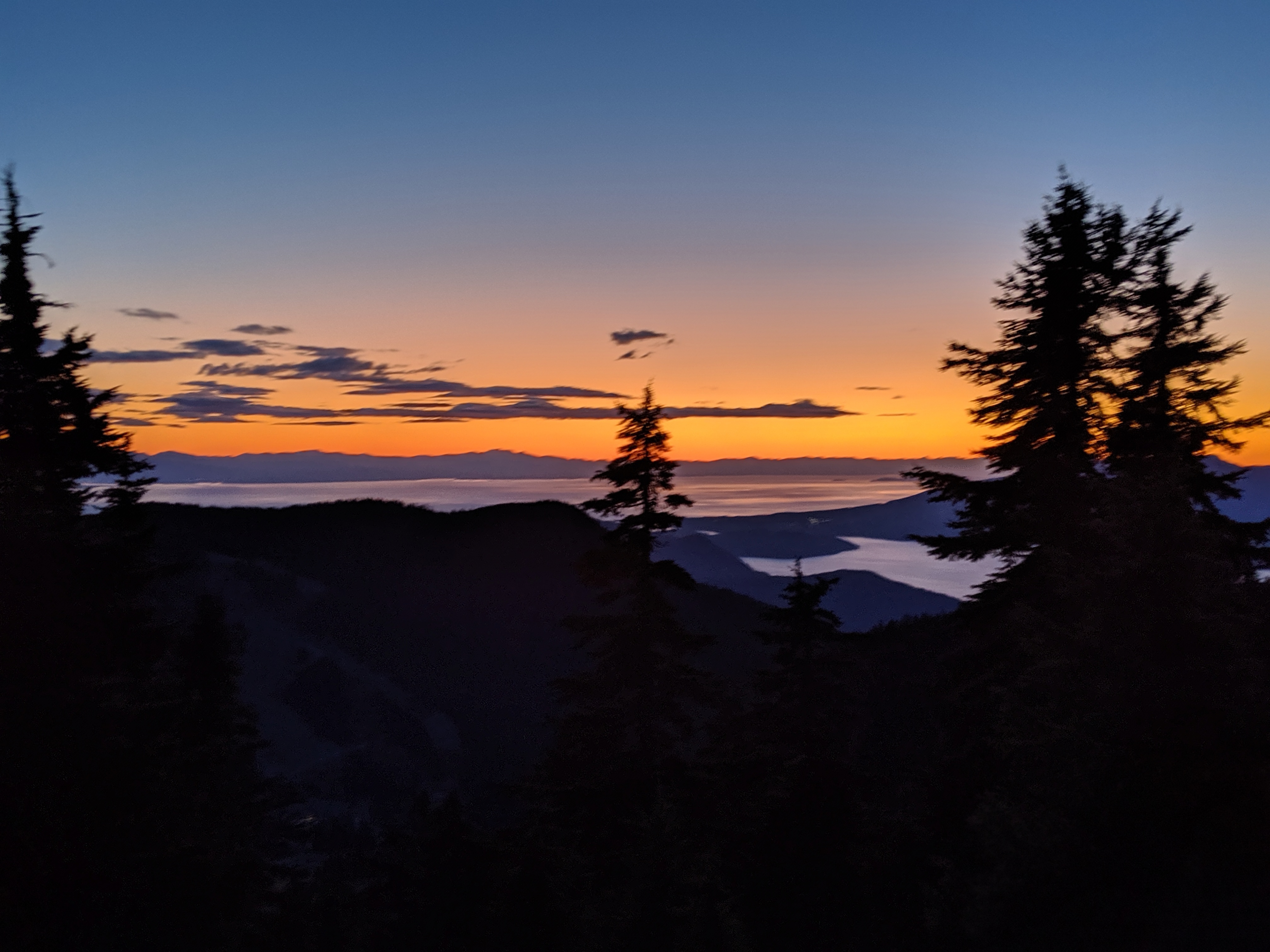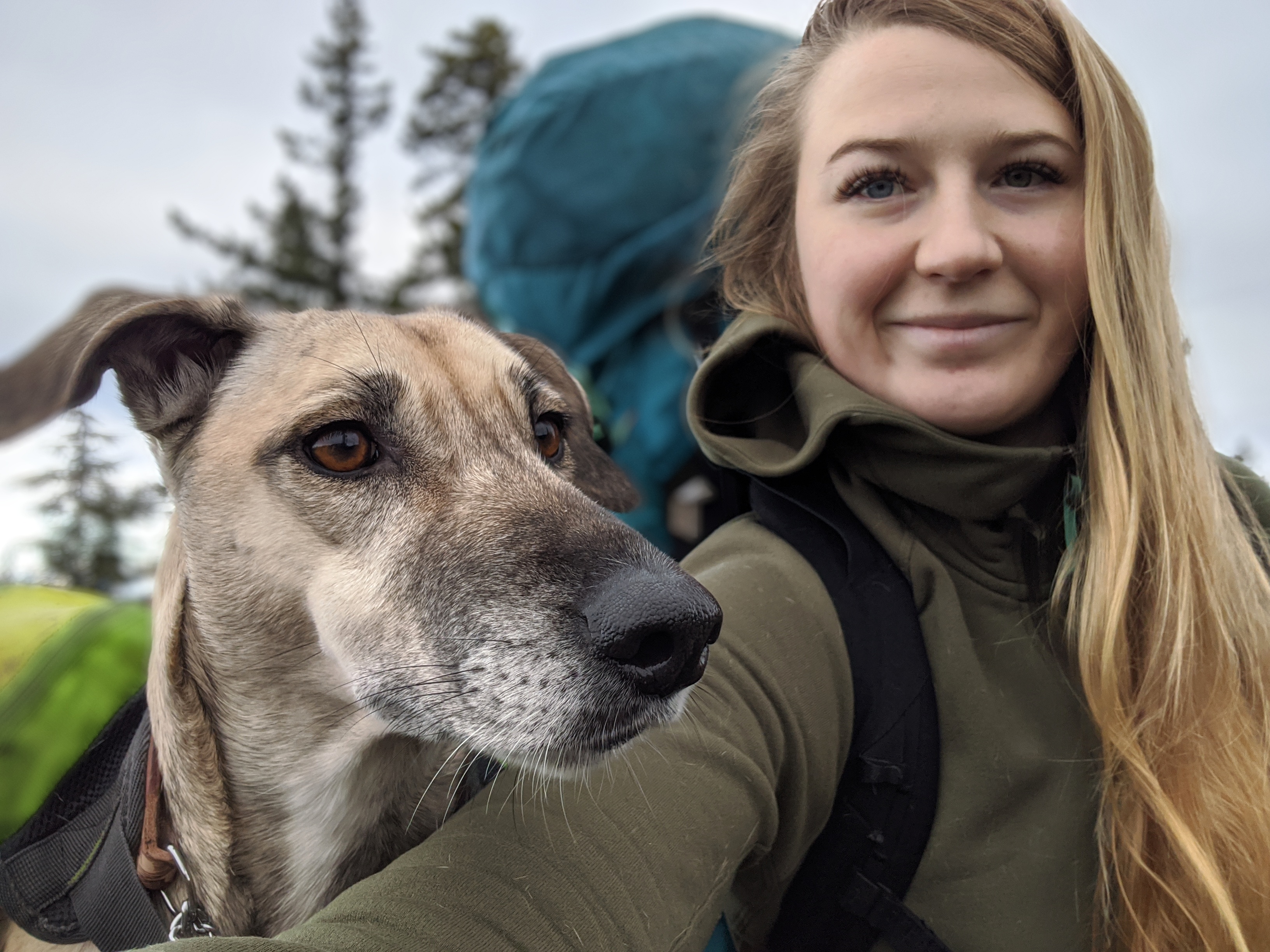Dec 11, 2019
By Emma Courtney, Instructional Assistant
I identify as an Outdoor Reckie. I live for snowboarding, hiking, camping, paddling – anything that gets me outside. I find that by disconnecting from the comfort zone of my couch and by leaving cell service, this allows me opportunity to deep dive into what makes me tick. To explore themes of resiliency, to embrace the suck, to push my mental and physical stamina and abilities, and ultimately, to grow. I figured I was pretty good at pushing myself – whether it was through rock climbing or canoeing, I was always pushing my own recreational envelope, as I was eager to explore what lay on the other side of discomfort.
I had always pushed my envelope of outdoor recreation with someone else – a friend, a partner, a classmate. The safety net of having someone else with me was what allowed me to achieve personal goals like canoeing the 110km Bowron Lake Circuit, or spending 4 months living out of a backpack in South East Asia. But at the end of 2018, I found myself questioning the necessity of having someone with me in the outdoors. Personal circumstances had led me to a place where I now realised that needing a partner to access my favorite places had become a barrier, instead of an enabler. Especially when it came to something I viewed as a necessity for my sanity: camping.
I’ll be honest – I am very afraid of the dark. That’s right, a grown woman with years of outdoor experience, I am often the first to head to the safety of the tent once darkness falls. I have a very elaborate imagination, so anything that goes bump in the night instantly becomes a bear or cougar or evil murderer preparing to attack me. So, I camp with others. They’ll keep me safe, right? Only – what if I don’t have anyone to camp with? How will I access my favorite spaces?
So, as much as I hated to admit it, I discovered the new envelope I needed to push. I decided in order to truly overcome my fear of the dark and become comfortable and confident in my favorite spaces, I would need to complete one solo camping trip a month, every month, for the entire year of 2019. So that’s what I did, and I’m going to share what I learned*.
*I want to pause here to tell anyone who is considering adventuring outdoors alone to do so safely, by leaving a trip plan, packing the essentials and having the proper training for their activity. Learn more at AdventureSmart.ca, or reach out to me with any questions.
Beginning in January, I camped once a month, every single month, rain or shine, throughout the entire year of 2019. I’ll be honest, I wasn’t entirely solo, my faithful canine companion, Nina, joined me on every excursion. However I quickly realised that the perception of having her for safety was a little inaccurate, as on our February camping trip, our tent was surrounded by a family of curious racoons and Nina was terrified! She didn’t let out a single peep and looked to me to protect her… so much the idea of having a vicious guard dog to protect me.
Throughout the year, I completed 8 backpacking trips and 4 car camping trips. I camped in waist-deep snow, I camped 15 km away from a forest fire (if you wake up smelling campfire at 3am – don’t write this off as your imagination!). Nina and I spent time by the ocean, we spent time in the mountains. We hiked many kilometres, and my backpack became an extension of me. My legs and body grew stronger, and so did my mind. We camped in 11 different locations around the lower mainland (my first and last campsite was the same – bookends to the adventure). We stuck to simple over-nighters, as I needed to make sure my goal would be achievable each month. Not to say I didn’t do any multi-day trips this year, I actually had the privilege of spending 24 nights over the year in my tent, and some great adventures with some great friends.
I will be very honest with you - it took me 8 months to finally have a good night’s sleep outside. To be able to stay out and to watch the stars without straining my ears, listening for the boogie man. I intentionally chose campsites away from others, so that the security net of having other people close by was not available to me, and that was hard. The morning after my 8th solo trip when I woke up and realised that I’d actually had a good night’s sleep, I celebrated. It was such an accomplishment!
It took reflection on my final camping trip last weekend for me to really pull out my biggest takeaway from this year-long adventure. One theme I’ve always loved exploring through outdoor recreation is that by exploring our external landscapes, we’re given an opportunity to explore our internal landscape too. Let me expand on that: when I’m outside and something is difficult, I can observe what happens to me internally and reflect on how this shows up in my every day life. For example, when I’m hiking in the pouring rain and I am miserable, what is my internal dialogue? How do I handle that discomfort? Can I recognise this internal dialogue when I come up against discomfort in my everyday life? Answering those questions allows me to explore two things: 1. Does my response to hardship serve me in the long run? 2. If not, can I take steps so that I can shift my automatic response to one that does serves me? So, if I’m hiking in the rain and my internal dialogue is raging about how much this sucks and how much I hate it and why am I here and why do I do this to myself and what an idiot am I for taking up hiking on the west coast etc. I have an opportunity to explore this internal landscape. Why is this coming up? Is it serving me? How can I change it? Even simply, can I sit with this discomfort? Can I keep myself company as I move through hardship? “It’s okay Emma, we’re going to get through this.”
As I sat last weekend on top of a mountain in the dark, relishing in the fact that I could sit outside at night and feel comfortable and at home, I realized that through my solo camping trips, I had entered into a new relationship with the places I love the most. I was no longer afraid of nature – in fact, I was comforted by the darkness. The sounds of the wind in the trees, the water droplets falling, this was my new lullaby and I loved it. That’s when I realised the importance of these camping trips. Not only had I entered into a new relationship with nature, but I had entered into a new relationship with myself.
As I had pushed myself through the difficult external landscapes, I had undergone the same journey within myself. 2019 was a really hard year for me. I struggled to maintain my mental health and I moved through a lot of darkness. Through my camping trips, by being entirely alone I had learned to sit with my darkness. To comfort myself in the difficult times: “it’s okay Emma, we’re going to get through this.” As I had learned to take comfort in both the light and the dark of the mountains, I had also learned how to do this for myself. I learned how to sit and be with my thoughts, the light happy ones and the dark ones. This is an ongoing skill that I will continuously develop, but sitting in the knowledge that I can not only overcome my fears, but I can also sit with them, to give myself comfort when I can’t overcome them, is why I recognize recreation to be so important.
There are a few things I want to mention – first of all, by no means am I advocating using your tent as a therapist! Or am I recommending that when going through difficulty, one should isolate themselves. We need others and we need to learn how to ask for help when we need it. But we also need to figure out when we need others, or when we need to ask for help – and the only way we can do that is to become familiar with our own internal landscapes. So I implore you to find your version of a solo camping trip. To find space where you can enter into a new relationship with yourself and embrace both your light and your darkness. It is so powerful to work in an industry that provides and creates these opportunities for others. I hope that everyone has a wonderful holiday season full of light and love, and of course, recreation!
